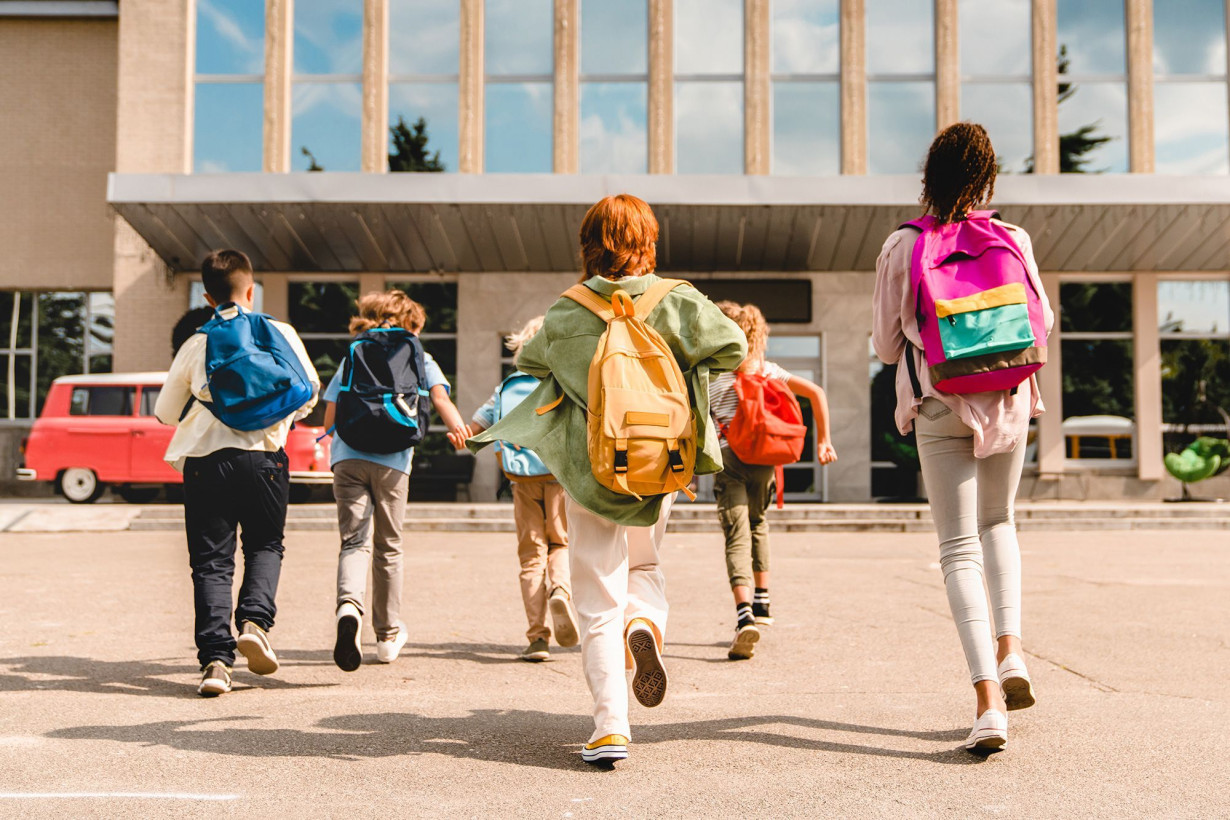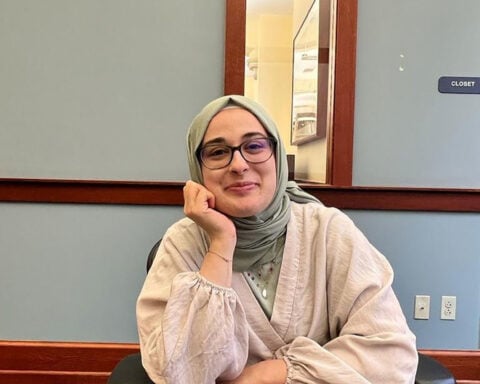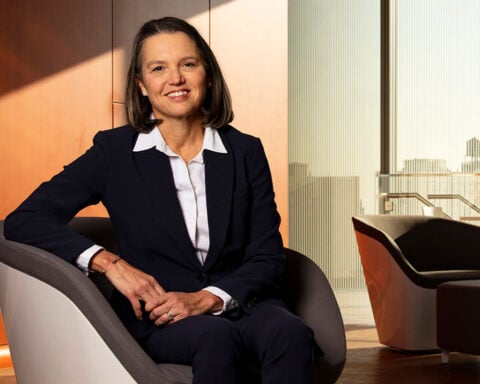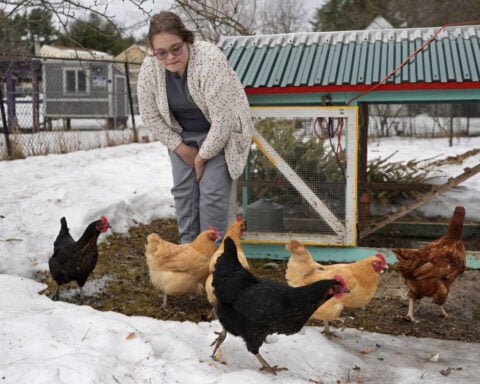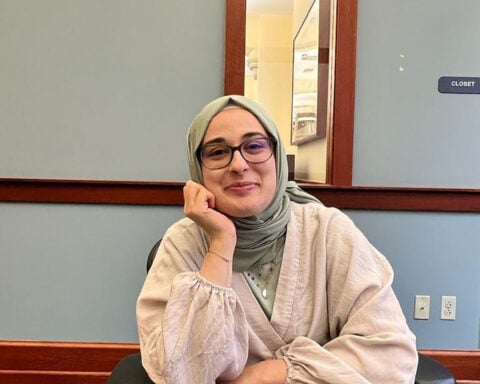Editor’s note: The podcast Chasing Life With Dr. Sanjay Gupta explores the medical science behind some of life’s mysteries big and small. You can listen to episodes here.
(CNN) — Puberty: It’s one of the most important milestones in a young person’s life. It’s also one of the most awkward.
Hormonal shifts lead to massive changes in body and mind, including growth spurts beyond just height, hair growth beyond just the head, mood swings beyond just tantrums and, for most, a sexual awakening. The process can be fraught with anxiety, insecurity and emotional upheaval for all involved, beyond the person going through it.
“Puberty in its narrowest definition means the path to sexual maturation,” Dr. Cara Natterson told CNN Chief Medical Correspondent Dr. Sanjay Gupta recently, on his podcast Chasing Life.
“When you start puberty, you cannot be part of a baby-making equation. And when you finish puberty, you can potentially be part of making a baby,” she said. The broader definition, she said, includes the effects from all of those sex hormones — estrogen, progesterone and testosterone — including “mood swings, friendship shifts, shifts in the way kids make decisions.”
Natterson, a pediatrician, is the author of the updated best-selling series for girls, “The Care and Keeping of You,” and the ensuing separate volume for boys, “Guy Stuff.”
But it wasn’t until her own children hit adolescence that she realized there wasn’t enough information out there. “My kids went into puberty, and it became very clear to me that we needed a whole lot more than my little book and everyone else’s little books,” she said.
To help fill that void and ratchet down the mystery (and sometimes shame) of this stage of life, she and a friend cocreated the platform lessawkward.com.
While the process of puberty hasn’t changed, the timing has.
“Puberty (globally) is starting earlier, and we’ve known this for a long time,” Natterson said. This younger start might be happening for a variety of reasons, she said, including changes in average weight of children, environmental factors and relentless psycho-social stress.
You can listen to the full episode here.
Muddling the picture, puberty is often conflated with a separate, but closely related, biological process.
“There’s this thing called ‘adrenarche’ that is caused when the adrenal glands release their hormones, DHEA and DHEAS,” Natterson said, noting that they are cousins of estrogen and testosterone. These hormones tell the body to make more sweat and, in certain places, to make it with greasier, thicker proteins, and to sprout more hair.”
“It happens around the same time as puberty, but in some kids, it can happen much earlier. So, a 5-year-old can have pubic hair, and they’re not in puberty. Or a 15-year-old can be well through puberty and have no body odor, no greasiness and no pubic hair growth. It’s confusing.”
Should parents worry? And if so, when?
“Any adult who thinks the kid in their life is going into puberty and they have a question or a concern, reach out to a health care provider,” Natterson said . The pediatrician will talk to your child and also perform a physical exam to determine what, exactly, is going on. A parent may be asked to wait outside, depending on the child’s age, but can ask questions after.
What can you do to help your child navigate this potentially challenging stage of life? Natterson wants parents to keep these five things in mind.
Puberty starts earlier
“The (average) age is 8-9 for girls and 9-10 for boys, which means it is happening 2-3 years sooner than it did for many of us,” Natterson said via email.
She said that when she was in medical school, students were taught that the start of puberty, typically with the onset of breast development, begins at 11 or 11 and a half. But then a groundbreaking study of 17,000 girls was published in 1997, showing that the average age for the start of breast development was 9.96 years for White girls and 8.87 years for Black girls.
Another study of more than 1,200 girls, published in 2010, sought to confirm those findings. “And it didn’t just confirm it, it moved the starting point even further,” she said.
“Starting in 2010 … we knew that the average age of breast development for a girl fell somewhere between 8 and 9 in this country,” she said. “And for boys, the start of puberty looks like testicular and penile growth, which frankly, most parents have no idea is happening … That average age is between 9 and 10.
“That’s different — that’s two years different — from when we were growing up,” she said.
So what is a “normal” age to show signs of puberty?
“Before age 7 for a girl, before age 8 for a boy … (if) you start seeing changes in the body, you want to bring in a medical thinker,” Natterson said. “But you noticed I’m not using the word ‘concerned’ or ‘worried’ because there are a lot of red herrings here. There are a lot of things that can look like puberty that aren’t puberty.”
“Oh, and by the way, if they’re 12 and nothing has happened, that is also normal,” she said. “So now wrap your brain around a five- or six-year spread of ‘normal’ onset of body changes. That’s really hard for everyone to manage.”
Puberty now lasts longer
“It’s not moving faster, but rather slower!” Natterson said.
She was taught, again in medical school, that puberty takes about two to four years. “It’s a sprint, and you get through it, and it’s super awkward, and your body changes, and then you’re done,” she said.
But nowadays, Natterson said, “it takes nearly a decade for kids to get through it.”
It happens online
Coming of age is radically different today compared to 20 years ago in part thanks to screens, Natterson pointed out.
“Devices — cellphones for sure, but also iPads and laptops and video consoles, too — are shifting the ways kids travel through their tween and teen years both physically and emotionally,” she said via email.
“Take sleep. The devices themselves, both their engrossing content and their blue light, keep kids up later into the night, in turn reducing their sleep. When devices are kept in the bedroom, pinging notifications interrupt sleep or prevent us from entering deep sleep cycles,” she said. “Less sleep impacts everything from their metabolism to their growth. Emotionally, too little sleep reduces focus and exacerbates mental health issues and shifts overall mood, all of which affect friendships, sibling dynamics, romantic relationships, and more.”
Interrupted sleep is just one example of the impact of screens, Natterson said. “Their very content has direct effects on self-esteem, risk taking behaviors, choices about what to put into and onto their bodies,” she said.
And that content might also include pornography. “The average age of first porn viewing in this country is 12 … and 15% of 10-year-olds have seen it,” she said. (Those statistics are based on teens’ self-reported use of pornography in a 2022 survey from Common Sense Media.)
“If you’re not having conversations like this — about all of this: smells and feelings and sex and all of it — if you’re not having those conversations with the kids in your lives, someone else is,” she said.
Puberty affects the body and brain
“The same sex hormones that change the body also impact the brain,” Natterson said, “which explains everything from mood swings to social shifts to decision making.”
“The sex hormones — whether they are estrogen and progesterone, which govern female puberty, or testosterone, which governs male puberty — they circle around the brain. They change the way the neurons fire. They change the way moods are expressed,” she said.
“(Pediatric endocrinologist and researcher) Louise Greenspan says the first sign of puberty is not breast development or penile and testicular growth. It is a slamming door. I love that line; it is absolutely true,” she said. “That is, all those hormones rising and falling and coursing through the brain and changing the way the brain feels and the way it reacts — it has to be a setup for mental health issues if we are not talking about it.”
It’s better with conversations
Ideally conversations that take place “many, many times over many years,” Natterson said.
“If there’s one piece of advice I can give the adults who care about kids, it’s this: realize that they’re interested in being in the conversation with you, even if they don’t speak,” she said.
“Ask them questions, and then zip it and listen to what they have to say. Because if you can stop filling the space with your own words, you’re going to learn how much all of these outside factors are bearing down on their life. They just need space to speak.”
That said, it might be awkward, and it might be hard. To talk to her son, Natterson said she would sit outside of his closed bedroom door and chat; over time that door opened. “He was almost invariably sitting at his desk in his chair, and I would go lay down on his bed and look straight up at the ceiling, and I’d be like, ‘Hey, dude, how you doing?’ And he’d start talking. No eye contact,” she said.
“But my laying on his bed and him sitting at his desk with his back to me was a place and a way that we could get into some of our best conversations.” Other similar no-eye-contact locations are in the car and on walks, she added.
Also, it might not go perfectly. “When you mess the conversation up, which we all do (!), just take a do-over and try again,” she said.
We hope these five tips help everyone get through puberty with a little less turbulence. Listen to the full episode here. And join us next week on the Chasing Life podcast when we learn about the benefits of stress and why it is actually necessary for our well-being.
The-CNN-Wire
™ & © 2025 Cable News Network, Inc., a Warner Bros. Discovery Company. All rights reserved.

 Trump has begun another trade war. Here's a timeline of how we got here
Trump has begun another trade war. Here's a timeline of how we got here
 Canada's leader laments lost friendship with US in town that sheltered stranded Americans after 9/11
Canada's leader laments lost friendship with US in town that sheltered stranded Americans after 9/11
 Chinese EV giant BYD's fourth-quarter profit leaps 73%
Chinese EV giant BYD's fourth-quarter profit leaps 73%
 You're an American in another land? Prepare to talk about the why and how of Trump 2.0
You're an American in another land? Prepare to talk about the why and how of Trump 2.0
 Chalk talk: Star power, top teams and No. 5 seeds headline the women's March Madness Sweet 16
Chalk talk: Star power, top teams and No. 5 seeds headline the women's March Madness Sweet 16
 Purdue returns to Sweet 16 with 76-62 win over McNeese in March Madness
Purdue returns to Sweet 16 with 76-62 win over McNeese in March Madness
